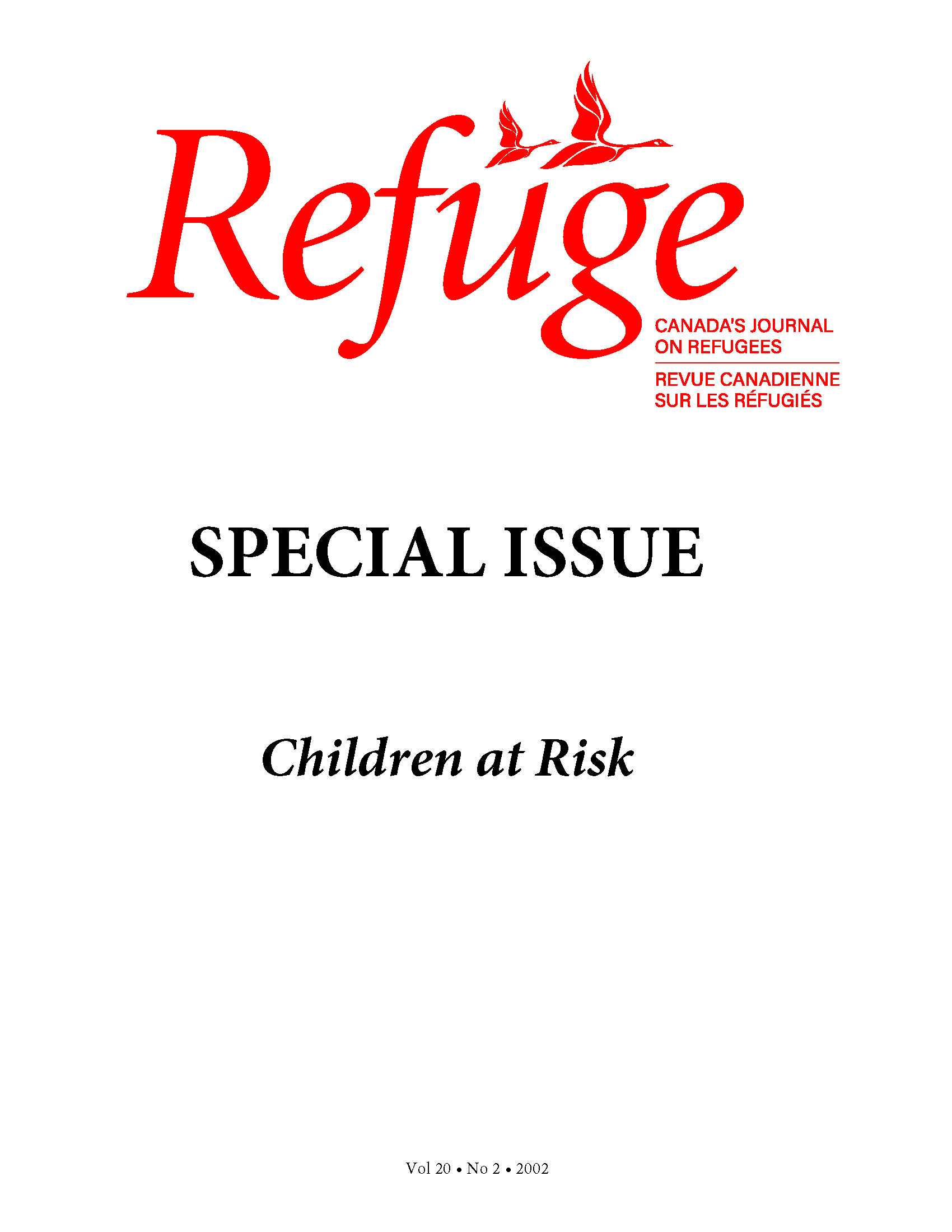The “Brown Paper Syndrome”: Unaccompanied Minors and Questions of Status
DOI:
https://doi.org/10.25071/1920-7336.21255Keywords:
Canada, refugee children, unaccompanied minors, legal status, integration, vulnerabilityAbstract
In principle, the Charter of Rights and Freedoms grants equal rights to all persons residing in Canadian territory. In practice, it is clear that some populations are more “equal” than others. Difficulties relating to the immigration process, access to services, and discrimination are but some of the forms of exclusion often confronted by minority and immigrant communities. For unaccompanied minors, their combined status as refugee claimants and as minors creates an added factor of vulnerability, referred to by one minor as the “brown paper syndrome.” Drawing on a case study of unaccompanied minors in Quebec, the present article examines the relationship between status and barriers to integration, looking more specifically at the difficulties faced by these youth in the refugee determination process and in accessing resources in the public, private, and community sectors.Metrics
Downloads
Published
How to Cite
Issue
Section
License
Copyright (c) 2002 Catherine Montgomery

This work is licensed under a Creative Commons Attribution-NonCommercial 4.0 International License.
Refuge authors retain the copyright over their work, and license it to the general public under the Creative Commons Attribution-Non Commercial License International (CC BY-NC 4.0). This license allows for non-commercial use, reproduction and adaption of the material in any medium or format, with proper attribution. For general information on Creative Commons licences, visit the Creative Commons site. For the CC BY-NC 4.0 license, review the human readable summary.







